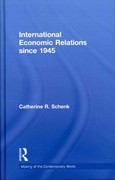Question
Economics (Week 14 Test) Question 1 (1 point) Which of the following is true about libertarianism? Question 1 options: A. The word libertarianism has a
Economics (Week 14 Test)
Question 1(1 point)
Which of the following is true about libertarianism?
Question 1 options:
A. The word "libertarianism" has a universal definition that is accepted by everybody.
B. One must be Catholic to be a libertarian.
C. Libertarianism is a synonym for "republic".
D. "Libertarianism" has a wide variety of definitions.
E. One must be a libertarian to be a Catholic.
Question 2(1 point)
Ordinances to outlaw monopolies and trusts are referred to as:
Question 2 options:
A. CPI Laws
B. Constitutional amendments
C. Sin taxes
D. Antitrust ordinances
E. Roman Laws
Question 3(1 point)
When we say that law is "pedagogic," we mean that law is:
Question 3 options:
A. Instructive
B. Nonsense
C. Irrelevant
D. Destructive
E. Immoral
Question 4(1 point)
Liberty is the ability to choose .
Question 4 options:
A. Anything, as long as the government says it's OK
B. Good
C. Evil
D. Good or evil
E. Anything, as long as it doesn't physically hurt anybody
Question 5(1 point)
From a Catholic viewpoint, which of these statements is true about "common good" and "law"?
Question 5 options:
A. The good of the family is never relevant to law
B. For validity, laws must not run counter to the common good
C. A ruler has no duty to promote the common good
D. The common good is not as important as keeping your favorite political party in power
E. Laws can be evil, as long as everyone suffers equally
Question 6(1 point)
Finish the definition: "The common good comprises the sum total of social conditions which allow people, either as groups or as individuals, to "
Question 6 options:
A. Be free of any form of government
B. Prosper
C. Reach their fulfillment more fully and more easily
D. Have the liberty to do as they wish
E. Make as much money as possible
Question 7(1 point)
Currently, the central bank of the United States is called:
Question 7 options:
A. The Federal Reserve System
B. The Commerce Department
C. The Defense Department
D. John's Savings and Loan
E, Goldman Sachs
Question 8(1 point)
In economics, GDP stands for:
Question 8 options:
A. Good Domestic Product
B. Gross Domestic Product
C. Good Domestic Principles
D. Gross Demand Product
E. Generally Decent Products
Question 9(1 point)
In economics, "durable goods" are those goods designed to:
Question 9 options:
A. Last three months or longer
B. Last indefinitely
C. Last three years or longer
D. Last until your kids break then
E. Last until the end of time
Question 10(1 point)
The economic graph illustrating thattax revenuescan rise if taxratesare lowered is called the .
Question 10 options:
A. Marx curve
B. Laughing curve
C. Law of increasing revenues
D. Business cycle
E. Laffer curve
Question 11(1 point)
All other things being equal, if there is a high level of inflation, your money in real dollars will:
Question 11 options:
A. Rise in buying power
B. Fall in buying power
C. Remain equal in buying power
D, Become tax free
E. None of the above
Question 12(1 point)
Which of these is NOT a form of government?
Question 12 options:
A. Monarchy
B. Aristocracy
C. Democracy
D. Anarchy
E. None of the above
Question 13(1 point)
Which is NOT an official purpose of the Federal Reserve?
Question 13 options:
A. Conducting the nation's monetary policy
B. Supervising and regulating banks
C. Maintaining the stability of the financial system
D. Directly assisting individual investors in their pursuit of wealth
E. All of the above
Question 14(1 point)
Which of these is the most common definition of a recession?
Question 14 options:
A. Two consecutive negative quarters in the Gross Domestic Product
B. Four consecutive positive quarters in the Gross Domestic Product
C. When you lose your job
D. When the stock market loses half its value
E. None of the above
Question 15(1 point)
Which of these economic indicators suggests a serious recession or even depression?
Question 15 options:
A. A very high level of unemployment
B. A huge number of bankruptcies
C. Massive home foreclosures
D. All of the above
E. None of the above
Question 16(1 point)
What is sometimes called the "cruelest tax" by economists?
Question 16 options:
A. The IRS
B. Inflation
C. Deflation
D. Real estate tax
E, Internet tax
Step by Step Solution
There are 3 Steps involved in it
Step: 1

Get Instant Access to Expert-Tailored Solutions
See step-by-step solutions with expert insights and AI powered tools for academic success
Step: 2

Step: 3

Ace Your Homework with AI
Get the answers you need in no time with our AI-driven, step-by-step assistance
Get Started


